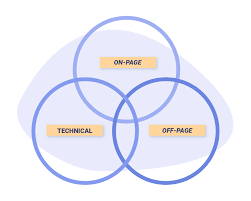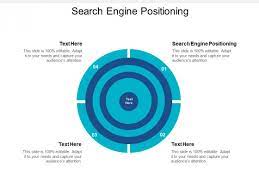Unlocking Success: SEO Strategies for 2021
The Future of SEO in 2021
Search Engine Optimization (SEO) is constantly evolving, and staying ahead of the curve is crucial for digital marketers and businesses. As we move into 2021, several trends are shaping the future of SEO and how websites can rank higher in search engine results.
Voice Search Optimization
The rise of voice search technology, with devices like Amazon Echo and Google Home becoming increasingly popular, means that businesses need to optimize their content for voice queries. Long-tail keywords and natural language phrases are key to capturing voice search traffic.
Mobile-First Indexing
Google has shifted to mobile-first indexing, meaning that the mobile version of a website is now considered the primary version for ranking purposes. Websites must be responsive and provide a seamless user experience on mobile devices to rank well in search results.
Content Quality and User Intent
High-quality, relevant content that meets user intent is essential for SEO success in 2021. Search engines are increasingly prioritizing content that provides value to users, so focusing on creating informative, engaging content will be crucial for ranking well.
Featured Snippets and Zero-Click Searches
Featured snippets have become more prominent in search results, providing users with quick answers without having to click through to a website. Optimizing content for featured snippets can help increase visibility and drive organic traffic.
Local SEO and Google My Business
For businesses targeting local customers, optimizing for local search results through Google My Business is essential. Ensuring accurate business information, managing reviews, and engaging with customers can help improve local SEO rankings.
Technical SEO and Core Web Vitals
Technical aspects of SEO, such as site speed, mobile-friendliness, and security, play a significant role in rankings. Google’s Core Web Vitals update focuses on user experience metrics like loading speed and interactivity, making technical optimization more critical than ever.
Conclusion
In 2021, SEO continues to be a vital component of digital marketing strategies. By adapting to emerging trends like voice search optimization, mobile-first indexing, and user-focused content creation, businesses can stay ahead in the competitive online landscape and drive organic traffic to their websites.
9 Essential SEO Tips for 2021: Enhancing User Experience and Boosting Rankings
- Optimize for user intent, not just keywords.
- Create high-quality, valuable content that is relevant to your target audience.
- Improve website loading speed for better user experience and SEO ranking.
- Utilize long-tail keywords for more specific and targeted content.
- Optimize on-page elements such as title tags, meta descriptions, and headings.
- Focus on mobile optimization as mobile-first indexing is crucial for SEO success.
- Earn backlinks from reputable websites to increase domain authority and rankings.
- Regularly update and refresh old content to keep it relevant and engaging.
- Monitor performance using analytics tools to track progress and make data-driven decisions.
Optimize for user intent, not just keywords.
In the realm of SEO in 2021, a crucial tip to heed is the shift towards optimising for user intent rather than solely focusing on keywords. Understanding what users are searching for and tailoring content to meet their needs and expectations has become paramount in achieving success in search engine rankings. By creating valuable, relevant content that aligns with user queries and provides meaningful solutions, websites can enhance their visibility and engagement, ultimately driving organic traffic and improving overall SEO performance.
Create high-quality, valuable content that is relevant to your target audience.
In the realm of SEO for 2021, a fundamental tip is to focus on crafting high-quality and valuable content that resonates with your specific target audience. By creating content that is not only relevant but also informative and engaging, businesses can establish credibility, attract organic traffic, and ultimately improve their search engine rankings. Prioritising the needs and interests of your audience through quality content creation remains a cornerstone strategy in achieving SEO success in the ever-evolving digital landscape of 2021.
Improve website loading speed for better user experience and SEO ranking.
In the realm of SEO for 2021, a crucial tip to enhance both user experience and search engine ranking is to focus on improving website loading speed. A fast-loading website not only provides visitors with a seamless browsing experience but also aligns with search engines’ preference for delivering quick and relevant results. By optimising loading times, businesses can not only retain visitors but also boost their SEO performance, as search engines like Google consider page speed as a ranking factor. Prioritising website loading speed in SEO strategies for 2021 can lead to increased user engagement, higher conversion rates, and improved visibility in search results.
Utilize long-tail keywords for more specific and targeted content.
To enhance your SEO strategy in 2021, it is essential to incorporate long-tail keywords into your content. By utilising long-tail keywords, which are more specific and targeted phrases, you can better cater to the search intent of users and improve your chances of ranking higher in search engine results. These longer and more detailed keywords not only help drive relevant traffic to your website but also increase the likelihood of attracting potential customers who are actively seeking the products or services you offer. Embracing long-tail keywords can significantly boost the visibility and effectiveness of your online content in the competitive digital landscape of 2021.
Optimize on-page elements such as title tags, meta descriptions, and headings.
In the realm of SEO for 2021, a crucial tip is to meticulously optimise on-page elements like title tags, meta descriptions, and headings. These elements serve as vital signposts for search engines, guiding them on the relevance and context of your content. Crafting compelling and keyword-rich title tags, informative meta descriptions, and well-structured headings not only enhances the user experience but also boosts your website’s visibility in search engine results pages. By fine-tuning these on-page elements, businesses can significantly improve their SEO performance and attract more organic traffic to their website.
Focus on mobile optimization as mobile-first indexing is crucial for SEO success.
In 2021, focusing on mobile optimization is paramount for achieving SEO success. With the shift towards mobile-first indexing by search engines like Google, prioritising the mobile version of a website has become essential for ranking well in search results. Ensuring that your website is responsive, loads quickly on mobile devices, and provides a seamless user experience is key to improving visibility and driving organic traffic. Embracing mobile optimization strategies will not only enhance your SEO performance but also cater to the increasing number of users who rely on mobile devices for their online searches.
Earn backlinks from reputable websites to increase domain authority and rankings.
In the realm of SEO for 2021, a key strategy to enhance domain authority and improve search engine rankings is to acquire backlinks from reputable websites. Backlinks act as a vote of confidence from other sites, signalling to search engines that your content is valuable and trustworthy. By securing backlinks from high-quality, authoritative sources, businesses can bolster their online credibility and climb the ranks in search results. This approach not only boosts domain authority but also helps establish a strong digital footprint that resonates with both users and search algorithms.
Regularly update and refresh old content to keep it relevant and engaging.
In the dynamic landscape of SEO in 2021, a valuable tip is to consistently update and revitalise existing content to ensure its relevance and engagement with audiences. By refreshing older content with updated information, new insights, and improved visuals, businesses can not only maintain their search engine rankings but also enhance user experience and drive organic traffic to their websites. This proactive approach demonstrates a commitment to providing valuable and up-to-date content that resonates with users, ultimately contributing to improved SEO performance in the ever-evolving digital realm.
Monitor performance using analytics tools to track progress and make data-driven decisions.
In the realm of SEO for 2021, a crucial tip is to diligently monitor performance using analytics tools to track progress and make data-driven decisions. By leveraging analytics tools, businesses can gain valuable insights into how their SEO strategies are performing, allowing them to identify strengths, weaknesses, and areas for improvement. This data-driven approach empowers businesses to make informed decisions that optimise their SEO efforts for better visibility and success in the competitive digital landscape.







